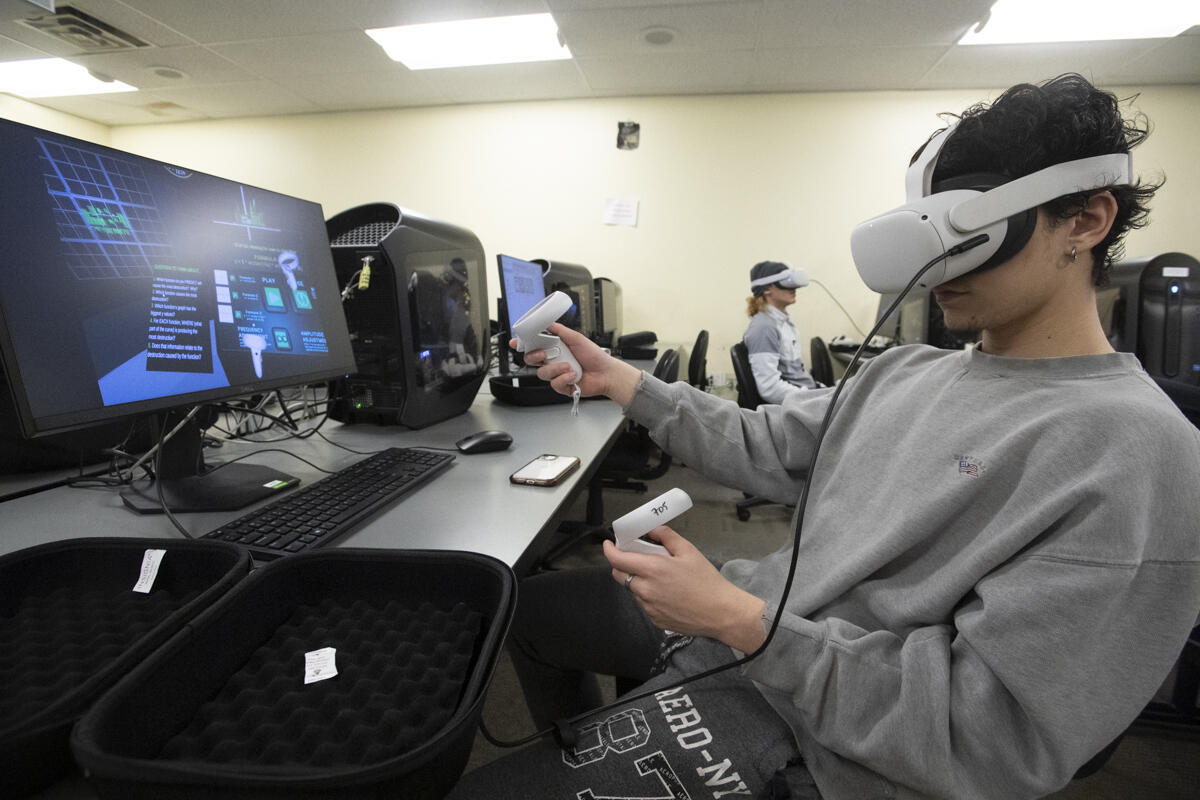
March 4, 2024
New minor lets VCU students explore mixed and immersive realities
Share this story
A new minor that lets Virginia Commonwealth University students expand their understanding of mixed and immersive realities and technology’s role in life and work will be available starting in the fall semester.
The mixed and immersive reality studies minor will be housed in the Interdisciplinary Studies Program in University College and is open to all VCU undergraduate students. Through varied disciplines, the curriculum seeks to answer questions such as: How can video games help with chronic pain? How will culture evolve as more interaction takes place virtually? What happens when a crime occurs virtually?
“The whiplash pace of technological evolution is challenging leaders of traditional academic disciplines to come together, push boundaries, break barriers and show all of us the new possibilities at hand to answer longstanding questions and solve grand world challenges,” said Fotis Sotiropoulos, Ph.D., provost and senior vice president for academic affairs. “The convergence approach to creating this new interdisciplinary minor is inspiring and a powerful reminder of the opportunities VCU’s innovative faculty members can create for the students we serve. Congratulations to those who worked so hard on this impressive new offering.”
Students will take courses in three concentration areas to fulfill the MIRS minor’s requirements: technological systems, design aesthetics, and humanities and social sciences. Two required IDS courses will serve to scaffold the minor as well: IDST 160: Introduction to Mixed and Immersive Reality Studies, and IDST 360: Mixed and Immersive Reality Studies Synthesis.
Unlike traditional minors, students will be able to take courses across multiple colleges and schools to fulfill requirements. Courses that go toward fulfilling the MIRS minor will be offered in the School of the Arts, University College, the College of Humanities and Sciences, and the College of Engineering. Some subjects students can pursue through the minor’s coursework are computer science, creative practices, philosophy, African American studies, mass communications and kinetic imaging.
“We expect the new minor to appeal to students who are eager to broaden their education in pursuit of new and exciting interdisciplinary coursework,” said IDS Director Zach Hilpert, Ph.D. “Immersive and augmented reality technology is becoming prevalent in fields ranging from medicine to entertainment to exercise science. It is also ripe for study by lawyers and ethicists, artists and sociologists. We’re excited to help foster new conversations about the roles of technology in our world, and this minor will help our students be experts in the design and implementation of those exciting new technologies.”
To learn more, visit the new minor's website.
Subscribe to VCU News
Subscribe to VCU News at newsletter.vcu.edu and receive a selection of stories, videos, photos, news clips and event listings in your inbox.







